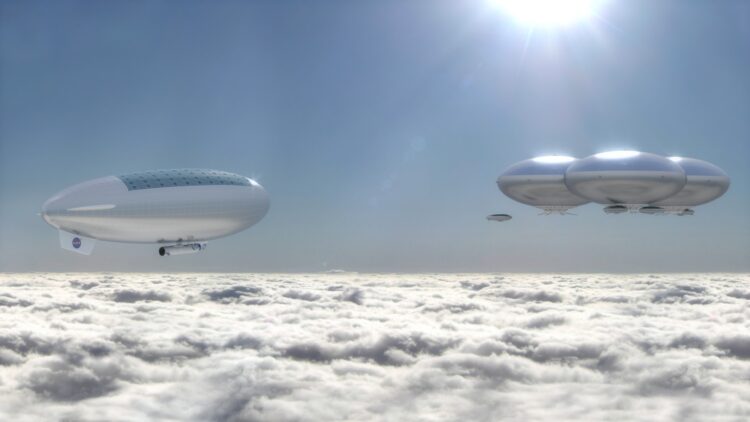NASA has always dreamt of colonizing other planets, and Mars is usually the center of all this. However, recent developments suggest a shift in focus to a different, more challenging destination: Venus.
This is a significant step for a new generation of space exploration where human intervention is more valued than remote control. Colonizing Venus is one of the strategies that NASA has masterminded and has shifted the style of colonization from the usual Mars colonization.
Venus: The unexpected choice for human colonization
Venus is often called the evil twin of Earth, and the conditions there are much more challenging than one would expect for a colony. Temperatures at its surface are high enough to melt lead, and the pressure in the atmosphere is 92 times that on Earth, making Venus inhabitable. But this is where NASA’s interest lies not on the planet’s surface but in the thermosphere, which has an environment more like Earth’s.
At about 50 kilometers above the surface, temperatures and pressures become more controllable. Here, NASA conceptualizes what could be floating habitats for human survival. These habitats would orbit in the comparatively warm region to avoid the surface’s high temperatures and pressures. This new strategy could transform Venus’s toxic atmosphere from a drawback into an advantage for human settlement.
The thought of floating cities on Venus is not novel at all. Aerostat habitats, where people might be suspended in the dense Venusian environment, have been considered by scientists for quite a long time. Such environments would be created to capture solar power and maybe pull resources from the air, making them autonomous. This vision of colonization of Venus as a planet radically differs from the most common understanding of space travel.
Overcoming the challenges of Venusian colonization
However, the opportunity to colonize Venus is not without its difficulties, as discussed below. Its atmosphere is dense, primarily CO2 and acid sulphuric clouds, which is dangerous for health. In regards to this, NASA is developing new materials and technologies to shield occupants from these harsh environments. Some of these innovations could also be useful on earth.
One of the main problems is how people can live in such conditions in the long run. NASA’s research priorities are developing bio-physically closed ecological life support systems that allow air, water, and waste re-circulation. These systems are essential for stabilizing the environment in the floating habitats where people live. Also, the psychological and physiological consequences of existing in this environment are investigated.
The first was the ability to transport humans and all the resources they would need on Venus to the planet’s surface. In contrast with Mars, which has a pretty linear path from the Earth, getting to Venus is more complicated due to its dense atmosphere. NASA is, therefore, looking for different propulsion systems and entry methods for the craft to make travel safe and efficient. If needed, such efforts are made to prepare appropriately for further missions and colonization.
The potential benefits of colonizing Venus
The colonization of Venus could be beneficial in many ways from scientific and economic points of view. Because the planet is relatively close to Earth, it is a natural choice for those seeking to explore other worlds and exploit them for their resources. It can be assumed that such elements as sulfur and carbon in the planet’s atmosphere could be helpful for industrial purposes. Besides, knowledge of Venus’s climate and geology might help solve some of the problems existing on Earth.
The technological advancement most needed for the colonization of Venus might also be essential for the inhabitants of the Earth. Creating plans and equipment that can hold up Venus could create advancement in areas including material engineering, dependable energy production, and ecological architecture. That is when these technologies might significantly change space exploration and life on planet Earth.
Besides that, many plans could lead to scientific advancement in technologies necessary for Venusian colonization. The difficulties and possibilities of this grand plan could help the world again become interested in space and cooperate in it. NASA is doing this by aiming for Venus; the agency encourages human civilization to look to the stars.
An extraterrestrial colonization by NASA has been the key intention, and the planet Venus can be termed a promising destination. To avoid the problems of extreme conditions, NASA concentrates on the upper layer of the planet and makes the conditions suitable for people. This rather audacious mission raises questions about space settlement, positively affects technology progress, and can make generations dream.

